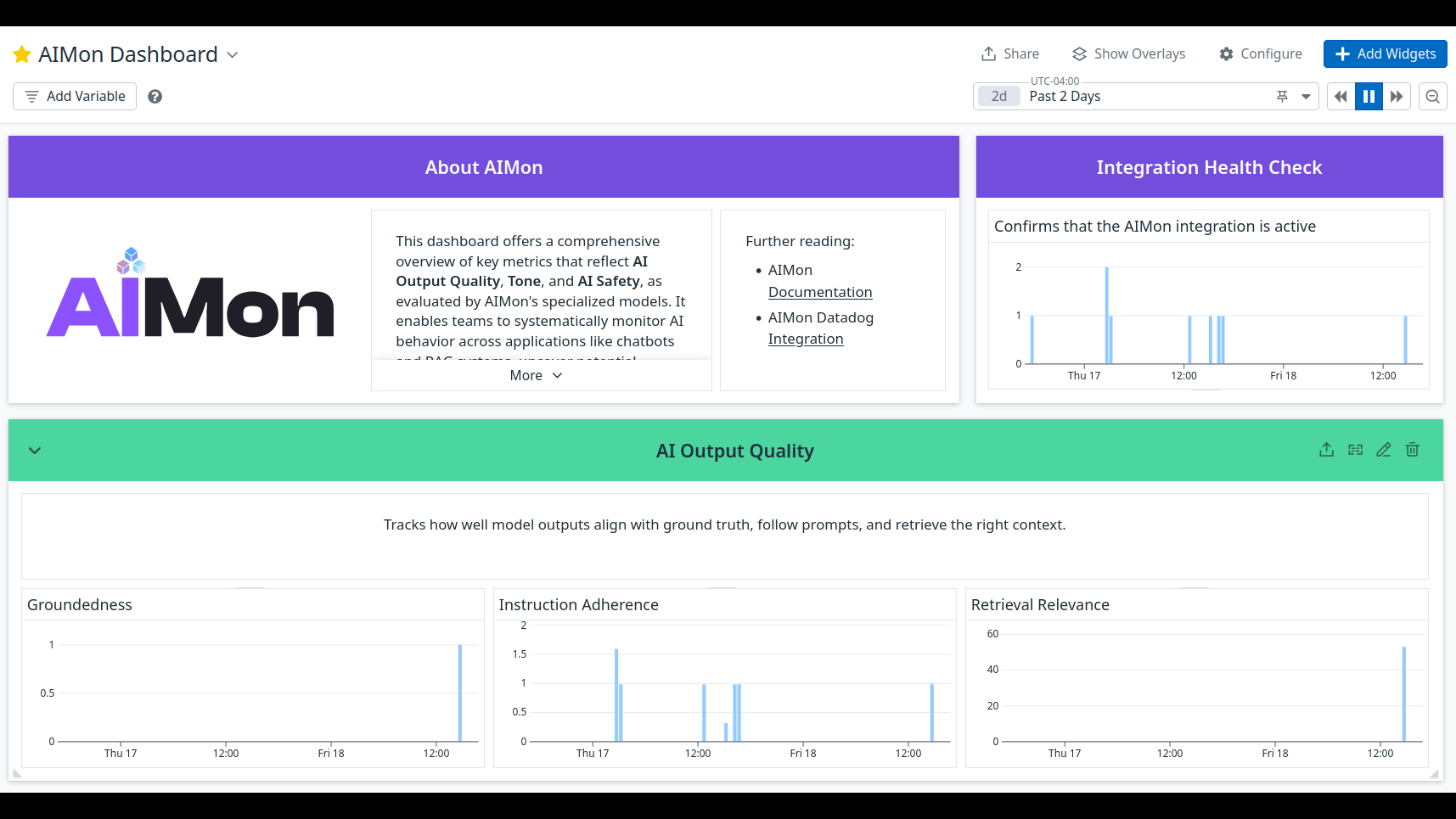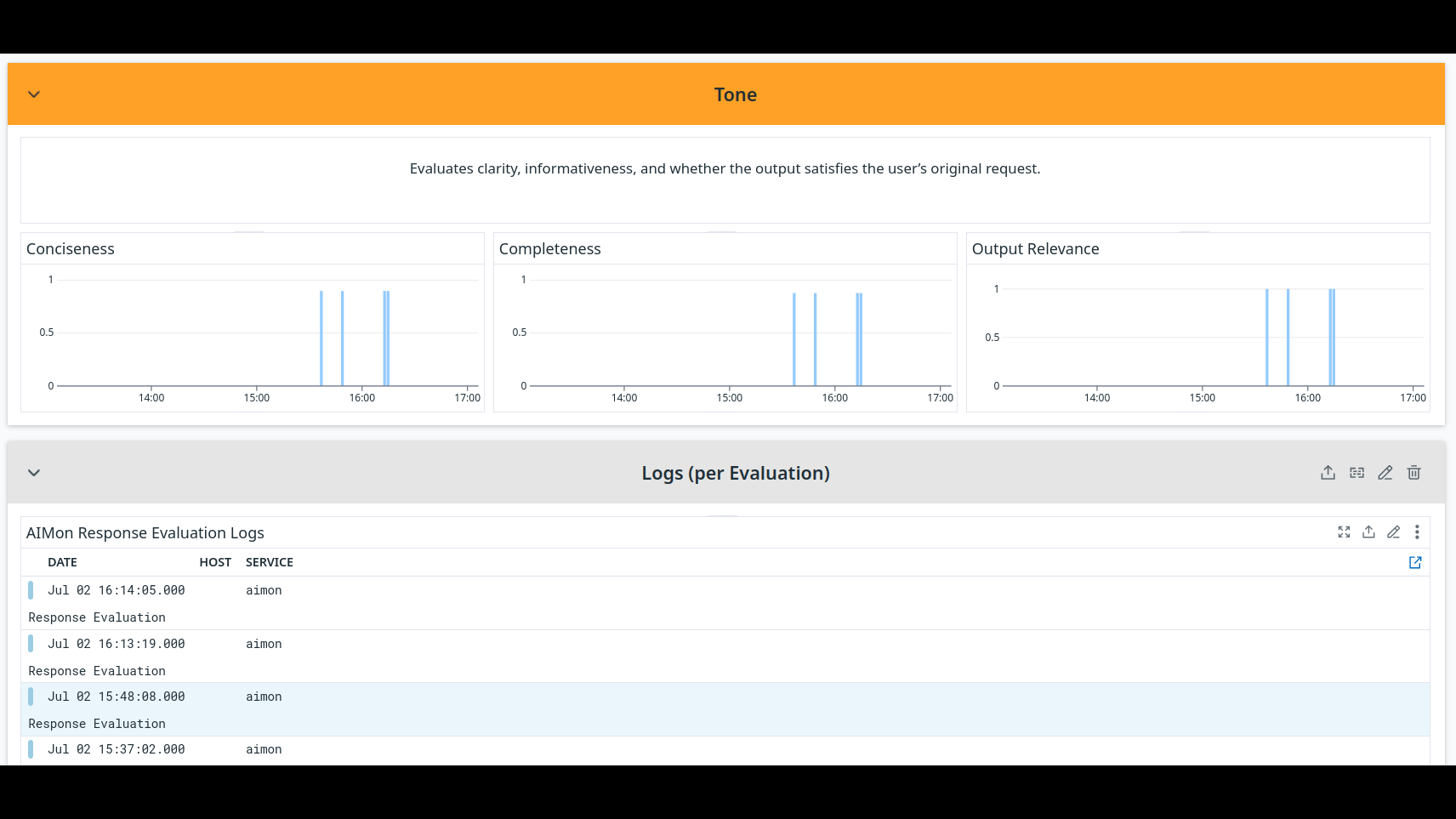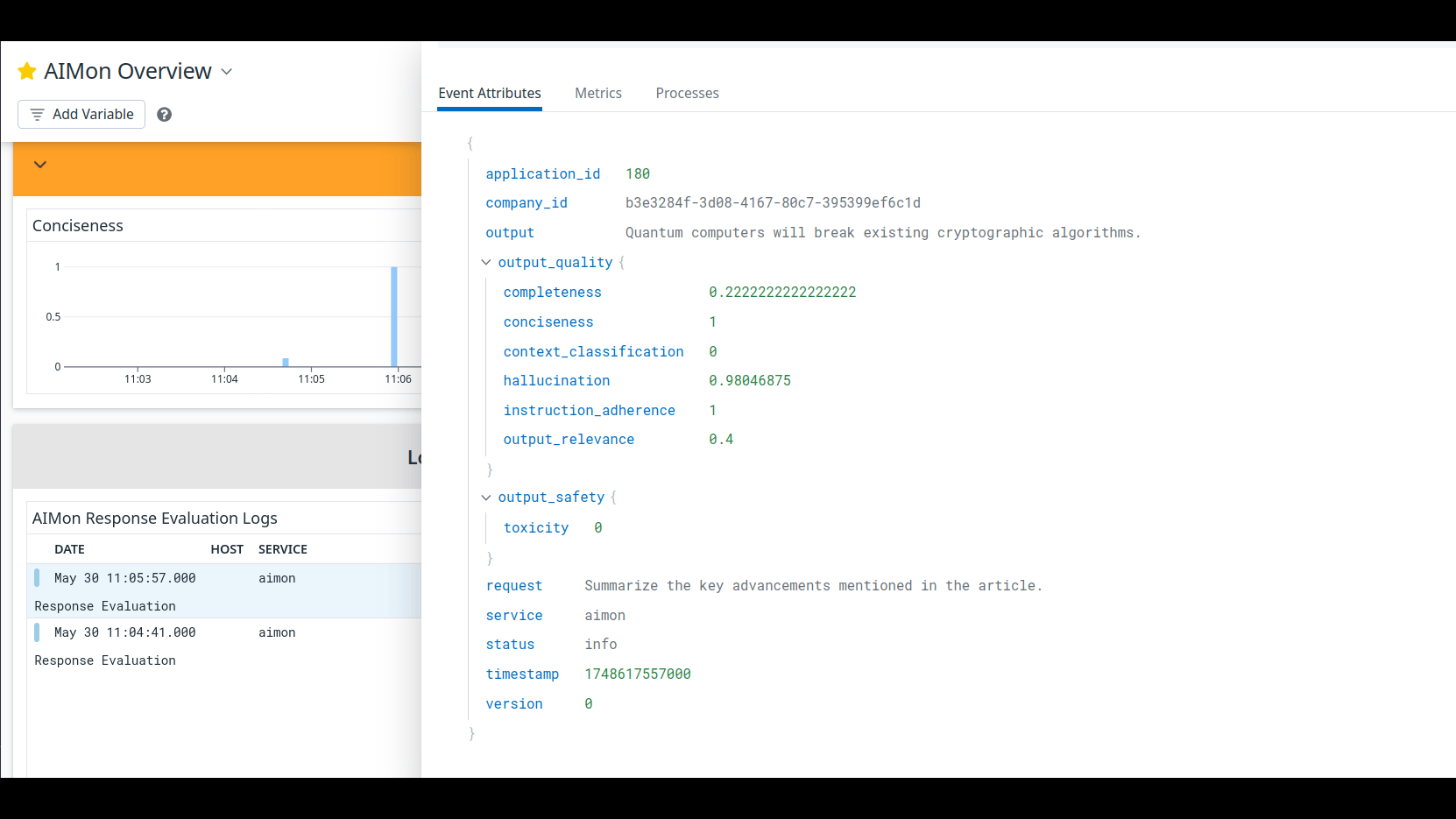- Essentials
- Getting Started
- Agent
- API
- APM Tracing
- Containers
- Dashboards
- Database Monitoring
- Datadog
- Datadog Site
- DevSecOps
- Incident Management
- Integrations
- Internal Developer Portal
- Logs
- Monitors
- Notebooks
- OpenTelemetry
- Profiler
- Search
- Session Replay
- Security
- Serverless for AWS Lambda
- Software Delivery
- Synthetic Monitoring and Testing
- Tags
- Workflow Automation
- Learning Center
- Support
- Glossary
- Standard Attributes
- Guides
- Agent
- Integrations
- Developers
- Authorization
- DogStatsD
- Custom Checks
- Integrations
- Build an Integration with Datadog
- Create an Agent-based Integration
- Create an API-based Integration
- Create a Log Pipeline
- Integration Assets Reference
- Build a Marketplace Offering
- Create an Integration Dashboard
- Create a Monitor Template
- Create a Cloud SIEM Detection Rule
- Install Agent Integration Developer Tool
- Service Checks
- IDE Plugins
- Community
- Guides
- OpenTelemetry
- Administrator's Guide
- API
- Partners
- Datadog Mobile App
- DDSQL Reference
- CoScreen
- CoTerm
- Remote Configuration
- Cloudcraft (Standalone)
- In The App
- Dashboards
- Notebooks
- DDSQL Editor
- Reference Tables
- Sheets
- Monitors and Alerting
- Service Level Objectives
- Metrics
- Watchdog
- Bits AI
- Internal Developer Portal
- Error Tracking
- Change Tracking
- Event Management
- Incident Response
- Actions & Remediations
- Infrastructure
- Cloudcraft
- Resource Catalog
- Universal Service Monitoring
- End User Device Monitoring
- Hosts
- Containers
- Processes
- Serverless
- Network Monitoring
- Storage Management
- Cloud Cost
- Application Performance
- APM
- Continuous Profiler
- Database Monitoring
- Agent Integration Overhead
- Setup Architectures
- Setting Up Postgres
- Setting Up MySQL
- Setting Up SQL Server
- Setting Up Oracle
- Setting Up Amazon DocumentDB
- Setting Up MongoDB
- Connecting DBM and Traces
- Data Collected
- Exploring Database Hosts
- Exploring Query Metrics
- Exploring Query Samples
- Exploring Database Schemas
- Exploring Recommendations
- Troubleshooting
- Guides
- Data Streams Monitoring
- Data Observability
- Digital Experience
- Real User Monitoring
- Synthetic Testing and Monitoring
- Continuous Testing
- Product Analytics
- Session Replay
- Software Delivery
- CI Visibility
- CD Visibility
- Deployment Gates
- Test Optimization
- Code Coverage
- PR Gates
- DORA Metrics
- Feature Flags
- Security
- Security Overview
- Cloud SIEM
- Code Security
- Cloud Security
- App and API Protection
- AI Guard
- Workload Protection
- Sensitive Data Scanner
- AI Observability
- Log Management
- Observability Pipelines
- Configuration
- Sources
- Processors
- Destinations
- Packs
- Akamai CDN
- Amazon CloudFront
- Amazon VPC Flow Logs
- AWS Application Load Balancer Logs
- AWS CloudTrail
- AWS Elastic Load Balancer Logs
- AWS Network Load Balancer Logs
- Cisco ASA
- Cloudflare
- F5
- Fastly
- Fortinet Firewall
- HAProxy Ingress
- Istio Proxy
- Juniper SRX Firewall Traffic Logs
- Netskope
- NGINX
- Okta
- Palo Alto Firewall
- Windows XML
- ZScaler ZIA DNS
- Zscaler ZIA Firewall
- Zscaler ZIA Tunnel
- Zscaler ZIA Web Logs
- Search Syntax
- Scaling and Performance
- Monitoring and Troubleshooting
- Guides and Resources
- Log Management
- CloudPrem
- Administration
AIMon
Supported OS
Integration version1.0.0




Dashboard overview with health check and AI output quality metrics.
Safety and Security Metrics.
Tone metrics with a list of response metadata logs.
Description of a response evaluation log.
Overview
AIMon provides tools that help organizations evaluate, monitor, and improve the quality and reliability of their AI applications. It surfaces key response metrics such as groundedness, instruction adherence, context relevance, and toxicity to help teams improve output quality and build more reliable AI systems.
The Datadog integration enables real-time or asynchronous visualization of these metrics, supporting faster anomaly detection, prompt evaluation, and tuning of LLM pipelines. AIMon also logs evaluation metadata such as user prompts, model responses, timestamps, and evaluation scores for traceability and debugging at scale.
Setup
- Within Datadog, navigate to the Integrations page and select AIMon.
- Click Install Integration, then select Connect Accounts. You will be redirected to AIMon login page.
- Log in to your AIMon account using your credentials or continue with Google. You will be redirected to the
/integrationstab on AIMon. - Toggle on the Datadog integration to enable the connection.
Note: If your organization already has a Datadog API key and an AIMon account, make sure you register under the same company name in AIMon. AIMon requires a one-to-one mapping between companies and Datadog organizations. Using a different company name results in an error.
When the integration is active and the AIMon API key is in use, the platform will automatically transmit:
- Evaluation metrics, such as hallucination scores and instruction adherence.
- Evaluation logs with relevant metadata, such as user prompts and model responses.
Data Collected
Metrics
| aimon.groundedness (gauge) | Detects fabricated or inaccurate content in LLM responses Shown as fraction |
| aimon.conciseness (gauge) | Evaluates whether the LLM output is succinct and clear Shown as fraction |
| aimon.completeness (gauge) | Determines whether the response fully answers the input query Shown as fraction |
| aimon.toxicity (gauge) | Identifies toxic or harmful language in the LLM output Shown as fraction |
| aimon.retrieval_relevance (gauge) | Measures how relevant the retrieved context is to the query Shown as fraction |
| aimon.context_classification (gauge) | Classifies whether the provided context was used appropriately and aligns with user intent Shown as fraction |
| aimon.instruction_adherence (gauge) | Measures how well the instructions are followed while generating a response Shown as fraction |
| aimon.health_check (gauge) | Indicates whether AIMon is reporting metrics correctly Shown as fraction |
| aimon.output_relevance (gauge) | Measures how well the response aligns with the user query Shown as fraction |
| aimon.prompt_injection (gauge) | Detects attempts in the user query to override system instructions using adversarial language Shown as fraction |
| aimon.cbrn (gauge) | Flags model outputs that include references to chemical, biological, radiological, or nuclear threats or related instructions Shown as fraction |
| aimon.personal_harm (gauge) | Detects mentions of self-harm, suicide, or encouragement of physically dangerous behavior in the model’s output Shown as fraction |
| aimon.unsafe_stereotypes (gauge) | Detects biased or discriminatory content in model outputs based on race, gender, religion, or identity groups Shown as fraction |
| aimon.code_detection (gauge) | Detects unsafe or system-level code patterns in the user query to prevent unintended execution or exploitation Shown as fraction |
| aimon.sql_prevention (gauge) | Flags SQL keywords or injection patterns in the user query that may indicate data access attempts or prompt attacks Shown as fraction |
| aimon.jailbreak (gauge) | Identifies jailbreak tactics in the user query designed to elicit harmful or filtered responses from the model Shown as fraction |
| aimon.pii (gauge) | Flags exposure of personally identifiable information such as names, addresses, or contact details in the model’s output Shown as fraction |
Uninstallation
- Log in to your account on the AIMon app and navigate to the Integrations tab.
- Disable the Datadog integration.
- Log in to Datadog and navigate to the Integrations tab.
- Disable the AIMon integration.
- Search for the integration name on the API Keys page and disable any associated API keys to fully revoke access.
Support
For support, please reach out to the AIMon team.
